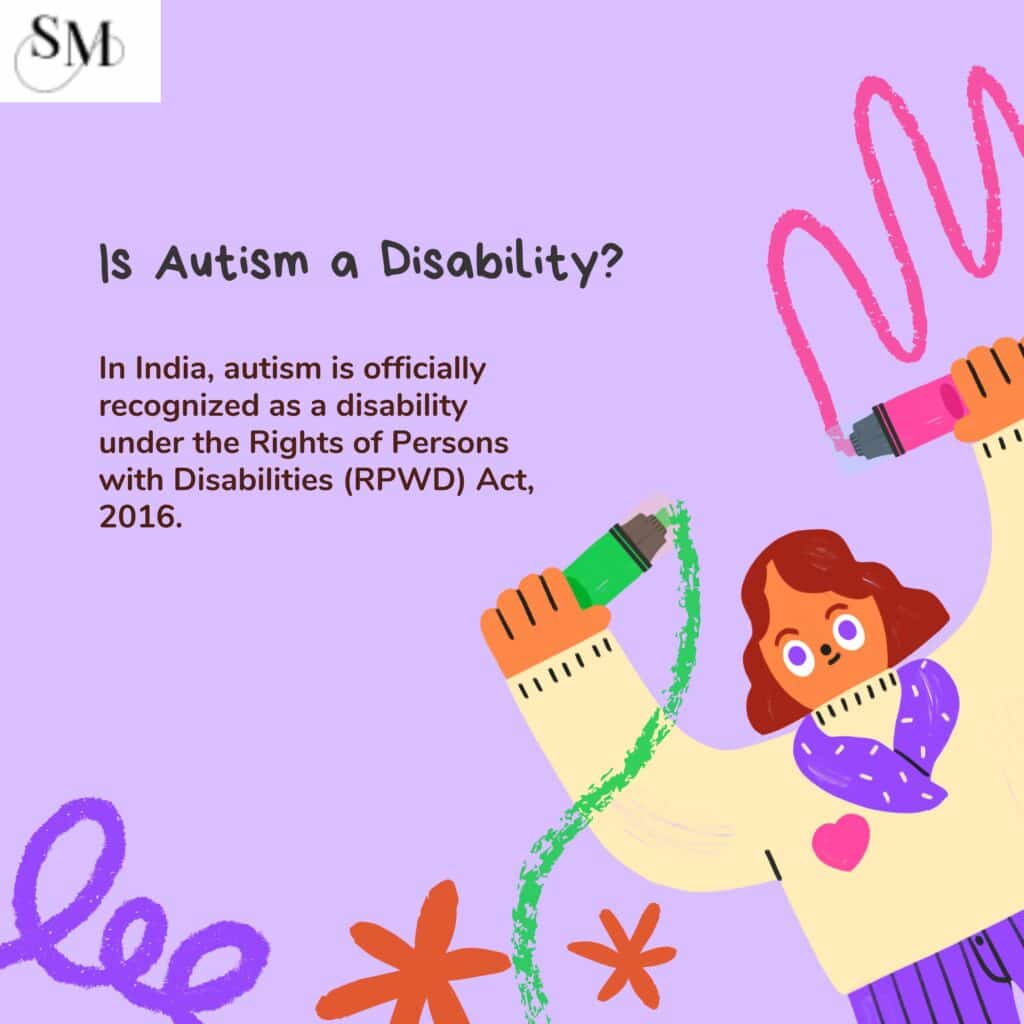Autism, also known as Autism Spectrum Disorder (ASD), is a neurodevelopmental condition that affects communication, behavior, and social interaction. Globally, the understanding and acceptance of autism have grown significantly, but in India, the perception of autism often lags behind due to a mix of cultural, social, and systemic challenges. This raises an important question: Is autism considered a disability in India?

Autism as a Disability: Legal Recognition in India
In India, autism is officially recognized as a disability under the Rights of Persons with Disabilities (RPWD) Act, 2016. The Act classifies autism as one of the 21 recognized disabilities, which ensures that individuals on the autism spectrum are entitled to certain rights, including access to education, employment opportunities, and government welfare schemes.
The recognition has been a significant step forward, but societal acceptance and practical implementation of these rights still have a long way to go.
Understanding Autism as a Spectrum
Autism is often referred to as a spectrum because the condition presents differently in every individual. Some individuals with autism may require significant support, while others may lead independent lives and excel in their areas of interest. This variability challenges the conventional understanding of “disability.”
In India, the perception of autism as a disability often depends on the severity of the condition and the level of support an individual requires.
Challenges Faced by Individuals with Autism in India
- Lack of Awareness
Many people in India remain unaware of what autism is, leading to misconceptions and stigmatization. - Limited Access to Early Diagnosis
Autism assessment and early intervention are critical, but access to these services is limited, especially in smaller cities and rural areas. - Educational Barriers
While inclusive education is gaining traction, many schools lack the infrastructure or trained staff to accommodate children with autism. - Workplace Challenges
Adults on the autism spectrum face significant barriers to employment due to societal biases and a lack of workplace accommodations. - Social Stigma
Cultural attitudes towards disabilities often label individuals with autism as “different” or “challenged,” creating hurdles for acceptance and inclusion.
Reframing Autism in India
While autism is legally recognized as a disability in India, there is a growing movement to view autism through a lens of neurodiversity. This perspective emphasizes that individuals with autism are not “broken” but instead have unique ways of experiencing and interacting with the world.
Advocates of neurodiversity argue that autism should not only be seen as a disability but also as a variation of human experience, with both challenges and strengths. Promoting this mindset could help foster greater acceptance and inclusion in Indian society.
Support and Resources for Autism in India
- Government Schemes: The RPWD Act provides rights to education, employment, and healthcare. However, awareness about these schemes remains low.
- Nonprofit Organizations: Many NGOs, such as Action for Autism and The Autism Society of India, work towards spreading awareness and providing support.
- Specialists and Therapists: Autism assessments and therapies, such as speech therapy and occupational therapy, are increasingly available in urban areas.
Conclusion
In India, autism is legally recognized as a disability, which ensures certain rights and benefits for individuals on the spectrum. However, societal understanding and acceptance need to improve to fully support those with autism. It is essential to strike a balance between recognizing the challenges autism presents and celebrating the strengths and uniqueness of individuals on the spectrum.
If you suspect your child or loved one might be on the autism spectrum, early assessment and intervention are critical. Surbhi Manocha, based in Meerut, provides professional autism assessments and guidance to help families navigate this journey. Reach out today to take the first step toward understanding and support.
